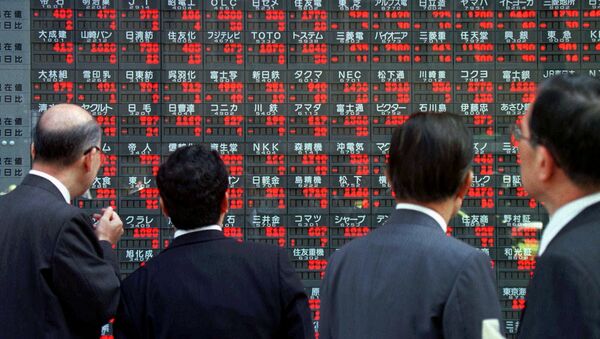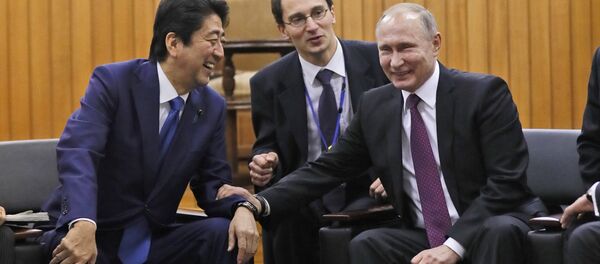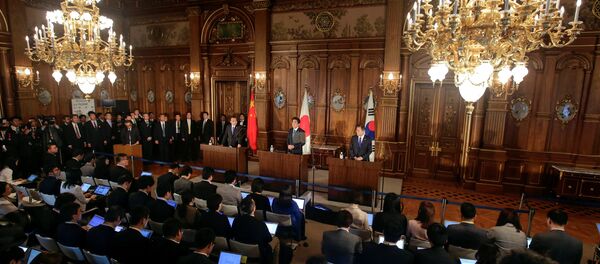Kristian Rouz — The cabinet of Japanese Prime Minister Shinzo Abe has come to an assessment that the nation's economy is on the path to a modest rebound from the first quarter's contraction. The ministers' confidence is echoed by analysts from investment firm Nomura, who expressed confidence the economy has overcome its Q1 softness, as negative seasonal and overseas factors have worn out.
After a series of cabinet meetings, the Japanese government has kept unchanged its assessment of the strength of the domestic consumer market. The ministers have agreed that a solid labor market, coupled with gains in disposable incomes, is an upside factor to the economic expansion.
"Japan's economy is gradually recovering," the Cabinet Office wrote in its monthly report, keeping its rhetoric unchanged from the past month.
The Japanese officials say that colder weather and turbulence in international trade plunged the nation's economy into last quarter's 0.2-percent contraction.
"There were a lot of temporary factors, such as cold weather pushing up vegetable prices, which led to lower consumer spending," the Cabinet Office said in a statement.
READ MORE: Japan Needs to Have 'Some Backup to Get a Better Bargain' — Analyst
In technical terms, an economic recession means at least two consecutive quarters of GDP contraction.
"The decline in the first-quarter gross domestic product came after eight quarters of growth, so we are not changing our overall assessment," the Japanese government said.
Meanwhile, experts from the investment firm Nomura have provided an in-depth explanation of where the Japanese economy stands currently and where it is heading.
The analysts said this means overseas turmoil could pass on to the Japanese economy and produce significant negative effects in the national economy. This could be avoided if the government ramps up its effort to boost the incomes of Japanese consumers.
"We project a moderate slowdown in Japanese real exports as a result of a gradual slowdown in the Chinese economy — which previously has driven the global economy — and a related loss of steam in global economic growth," Nomura analysts wrote. "Meanwhile, we think growth in consumer spending and other household demand is likely to remain weak."
READ MORE: Public Support for Abe's Cabinet Slightly Rises to 38.9% Despite Scandals — Poll
The experts also pointed out, despite the recent improvements, wage inflation in Japan remains subdued and hinders effective consumer purchasing power. The analysts urged a more pronounced acceleration in household incomes, which could be achieved through supply-side reforms.
Such measures partially fall in line with PM Abe's economic agenda — known as "Abenomics."
"Overall, we think there is unlikely to be enough of acceleration in domestic demand to maintain or increase economic growth," the Nomura experts wrote.
Additionally, the analysts pointed to Japan's excessive dependence on crude oil imports as a downside risk to macroeconomic stability. The experts upgraded their 2018 inflation forecast to 1.2 percent from a previous assessment of 0.8 percent — and still far below the Bank of Japan's (BoJ) 2-percent target.
READ MORE: Bank of Japan Weighs Policy Response as Economy Faces Recession Again
This comes as PM Abe is seeking to revitalize the Japanese economy by reducing its exposure to international risks, focusing his "Abenomics" on fiscal reforms and measures aimed at boosting labor productivity.
Still, the key to a robust recovery, experts note, is solid domestic consumption — as the global economy is becoming increasingly unpredictable.







